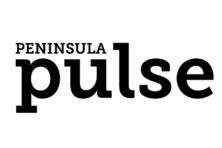What Does the Hike in Interest Rates Mean?
- Share
- Tweet
- Pin
- Share
Last week, the Federal Reserve hiked short-term interest rates for the first time in nearly 10 years, since the beginning of the Great Recession. The increase of 0.25 percent is considered small and the literal long-term effect on the economy is expected to be small as well. But the increase means a lot for an outlook on the recovering economy.
“The Committee judges that there has been considerable improvement in labor market conditions this year,” said the Federal Reserve in a press release following the rate increase. “Given the economic outlook, and recognizing the time it takes for policy actions to affect future economic outcomes, the Committee decided to raise the target range for the federal funds rate.”
Looking local, this faith in the American economic recovery is seen in Wisconsin’s 4.2 percent unemployment rate, the lowest in nearly 15 years. From a development side, the expansions of Sturgeon Bay companies such as Pro Products Inc., Cadence Inc. and the west side redevelopment reflects a growing economy. Even in the tourism sector, where Wild Tomato Wood-Fired Pizza and Grill is adding another location in Sister Bay or Julie’s Motel is adding a second story, business is good.
Improvements like this across the country informed the Federal Reserve’s decision to increase interest rates.
“So to keep the economy moving along the growth path it’s on, with improving and solid conditions in the labor market, we’d like to avoid a situation where we have left so much accommodation in place for so long that we overshoot these objectives and then have to tighten abruptly and risk damaging that performance,” said Federal Reserve Chair Janet Yellen in a statement.
The Federal Reserve’s raise in interest rates trickles down to a raise in interest rates for bank loans, auto financing and credit card users, making this borrowing more expensive. The goal is to save the economy from a boom-bust cycle. When interest rates stay low, consumers are more likely to apply for loans, adding more money to the market and spurring inflation to unsustainable levels. The hike in interest rates makes loans less attractive and reflects a trust in the economy to sustain itself. But the rate is still low compared to the 5.25 percent rate last seen in the 1990s.
Small business owners, which make up a large portion of Door County’s business economy, may feel a pinch as the local bank loans that they rely on charge higher interest rates, although the effects are not expected to be severe in the short term.
But since the stock market reflects the future economy, this change yielded some volatility on Wall Street. As Yellen strongly hinted at the increase leading up to the Federal Reserve meeting on Wednesday, stocks around the world rose. There was an immediate spur upward on Wall Street following the announcement with a slow decline in the days since.
What this means for you
The Federal Reserve is expected to raise interest rates gradually during the next year as the economy continues to improve. The minimal increases will keep any dramatic effects on consumers to a minimum, but here’s what you can expect when it comes to your money.
Increases in the return of savings accounts will be delayed and minimal because banks have a lot of cash in their coffers already so they do not need to attract your dollars by increasing interest rates.
Bonds typically decrease in value after an interest rate hike, but since the Federal Reserve alerted the public of its plans for weeks, the effect on bond values is also expected to be minimal. However, as rates continue to increase in the future, bond values may start to decrease significantly.
Mortgages are not tied to the interest rate hike because they are not considered short-term, but they still tend to increase with the news of an interest rate hike from the Federal Reserve. While the current increase isn’t much, if the Federal Reserve continues to increase rates, it could reflect a much higher cost in mortgages. Homeowners with a mortgage may want to look into a fixed rate before Federal Reserve interest rate hikes continue to increase.
For everyday consumers, credit cards rates will increase in the next few months but auto companies typically offer incentives to keep rates low with hopes to spur sales.

